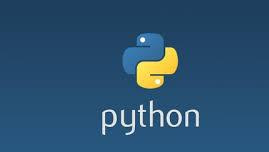Artificial Intelligence: The Future is Here
Artificial intelligence (AI) has long been the subject of science fiction movies and novels, but it is no longer just a fantasy. AI is now a reality, and it is transforming the way we live, work, and interact with each other. In this article, we will explore what AI is, how it works, and the many ways it is already being used.
What is Artificial Intelligence?
Artificial intelligence refers to a set of technologies and processes that enable machines to perform tasks that usually require human intelligence, such as learning, decision-making, and problem-solving. The goal of AI is to create machines that can think and act like humans, ultimately making them more useful and efficient.
How Does AI Work?
AI technologies rely on a set of algorithms designed to analyze and interpret data. The algorithms can be trained to recognize patterns and make predictions based on the data they receive.
There are three main types of AI: supervised learning, unsupervised learning, and reinforcement learning.
Supervised learning involves training a machine learning system on a set of labeled data. The system learns to recognize patterns in the data and then uses that knowledge to make predictions about new data. For example, a system could be trained on a set of images of cars and then use that knowledge to recognize cars in new images.
Unsupervised learning involves training a machine learning system on unlabeled data. The system learns to recognize similarities and differences in the data and then uses that knowledge to group the data into categories. For example, a system could be trained on a set of images of animals and then group the animals into categories based on their similarities.
Reinforcement learning involves training a machine learning system to make decisions based on feedback it receives. The system learns to take actions that lead to a desired outcome and avoids actions that lead to negative outcomes. For example, a system could be trained to play a game and learn to make moves that lead to winning the game.
Applications of AI
AI is already being used in many different industries, from healthcare to finance to entertainment. Here are just a few examples:
Healthcare – AI is being used to develop better diagnostic tools, predict patient outcomes, and personalize treatments.
Finance – AI is being used to detect fraud, predict market trends, and improve investment decisions.
Entertainment – AI is being used to personalize content recommendations, create virtual assistants, and develop more realistic gaming experiences.
AI is also being used to develop self-driving cars, drones, and robots that can perform tasks in dangerous or inaccessible environments. In addition, AI is being used to develop chatbots and virtual assistants that can help people with everything from scheduling appointments to shopping for groceries.
Challenges of AI
While AI has the potential to revolutionize many industries, it also presents some challenges. One of the main challenges is that AI systems can be biased, reflecting the biases of their creators or the data they were trained on. This can lead to unfair or discriminatory outcomes.
Another challenge is that AI systems can be vulnerable to attacks. Hackers can exploit vulnerabilities in AI systems to cause them to malfunction or make incorrect decisions. In addition, AI systems can be used to spread misinformation or propaganda.
Finally, there are concerns about the impact of AI on jobs. Some experts predict that AI will lead to significant job losses, particularly in industries such as manufacturing and transportation. However, others believe that AI will create new job opportunities and lead to greater productivity and economic growth.
Conclusion
Artificial intelligence is a game-changing technology that is already transforming many industries. While there are challenges to be addressed, the potential benefits of AI are enormous. As AI continues to evolve, we can expect to see even more innovative applications and use cases emerge. The future of AI is bright, and it is an exciting time to be a part of this rapidly evolving field.



